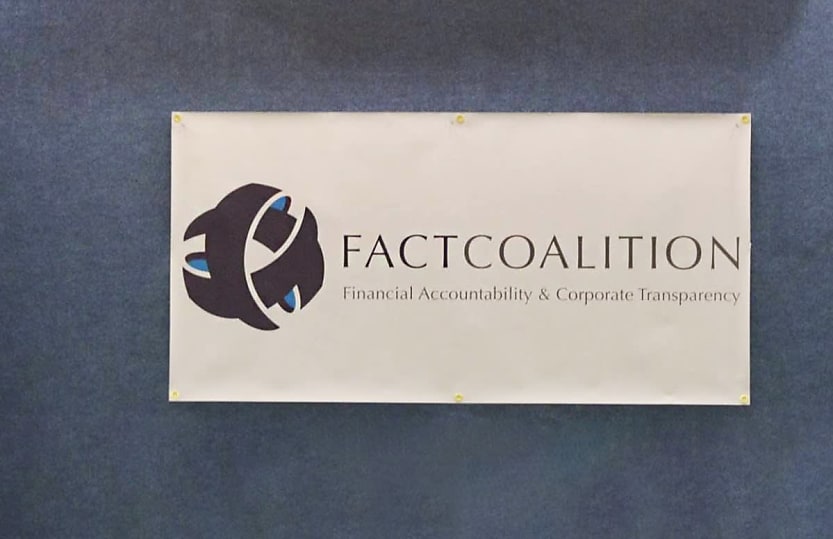US industry coalition backs Australian PCbCR regime amid lobby pressures

US lobbyists are pressuring the Trump administration to take action against Australia’s PCbCR tax transparency regime. A US coalition has countered this, arguing the regime should stay put.
The Financial Accountability and Corporate Transparency (FACT) Coalition, an alliance of over 100 organisations advocating for global tax transparency, has written a letter to US Treasury Secretary Scott Bessent in support of Australia’s incoming public country-by-country reporting (PCbCR) regime.
The letter, sent last Friday (26 September EDT), countered claims made by US business lobbyists that the PCbCR regime would exert “extraterritorial authority” on US-headquartered multinationals, inflict undue compliance requirements on companies, and force them to disclose commercially sensitive information.
For reporting periods starting from 1 July 2024, the PCbCR regime will require multinational entities with over $10 million in turnover in Australia to publicly disclose information regarding their global operations and tax affairs.
On 12 September (EDT), the lobbyists called on the Trump administration to counter the PCbCR regime and “engage with Australian authorities to address that country’s infringement on US companies" in an open letter to Bessent.
Thomas Georges, policy and communications officer at the FACT Coalition, countered claims that the regime exerted extraterritorial authority on US multinationals and told Accounting Times the PCbCR was a “big step forward” in global corporate tax transparency.
“This is very clearly not a regime that has extraterritorial scope or application. It only applies to companies that not only have elected to operate in the Australian market, but are making substantial revenues in the Australian market and clearly have a vested interest in being there,” Georges said.
”It requires disclosures only for a limited subset of jurisdictions that are deemed by the Minister for Treasury to pose a high level of profit shifting or aggressive tax planning risk.”
Multinational profit shifting continues to be a significant global issue, with an estimated USD$100–$240 billion lost annually, according to OECD figures.
The EU Tax Observatory estimated that Australia lost approximately $7 billion AUD in corporate tax revenue in 2020 due to profit shifting, or approximately 10.7 per cent of total corporate tax revenue.
In their 2024 Global Tax Evasion Report, the observatory also found that US multinationals were responsible for approximately 40 per cent of global profit shifting activities.
The lobbyists’ letter to Bessent claimed that information contained in the PCbCR regime was already available to the ATO, and the publication of this information was unnecessary for tax administration.
“This information is already available to the Australian Taxation Office through established confidential country-by-country reporting mechanisms for purposes of tax compliance,” the letter read.
“The key difference, and the source of concern for the rules under the PCbCR regime is that the information collected will be publicly available, which in our view serves no tax administration need.”
However, the ATO stated that the intention of the regime was to boost public knowledge and scrutiny regarding discrepancies between an entity’s economic presence in a jurisdiction and the amount of tax they paid, in a bid to disincentivise profit shifting.
Georges also countered arguments that US firms would be put at a competitive disadvantage if they were forced to publicly disclose the information required in the PCbCR.
“This is really quite high level information, when you’re talking at the level of revenues and income and employee counts and tangible assets,” he explained.
“You are not disclosing your patents. You are not disclosing trade secrets that are unique to your organisation.”
Furthermore, the ATO’s framework stipulated that reporting exceptions could be considered on a case-by-case basis if genuine commercial risks were present. Firms could request a one-year exemption in cases where revealing jurisdiction-related info could put them at a competitive disadvantage.
“We think that’s the right approach, and we think that it really addresses effectively and proportionally the major commercial sensitivity and confidentiality concerns that business groups have,” Georges said.
The FACT Coalition’s letter also noted that dozens of major multinational groups already published country-by-country information without facing “any competitive disadvantage”.
It cited the example of Shell, which testified to the European Parliament that its decision to publish CbCR information had not only not caused problems, but had also garnered trust and strengthened its relationships with customers, investors, and policymakers.
Georges said that certain US-headquartered multinationals were more likely averse to the PCbCR as it could pose reputational damages for firms that employed aggressive international tax planning strategies.
“I think fundamentally that comes down to some amount of embarrassment,” he said.
“From a reputational standpoint, there are certainly companies that would prefer to avoid doing it if they could.”
About the author

